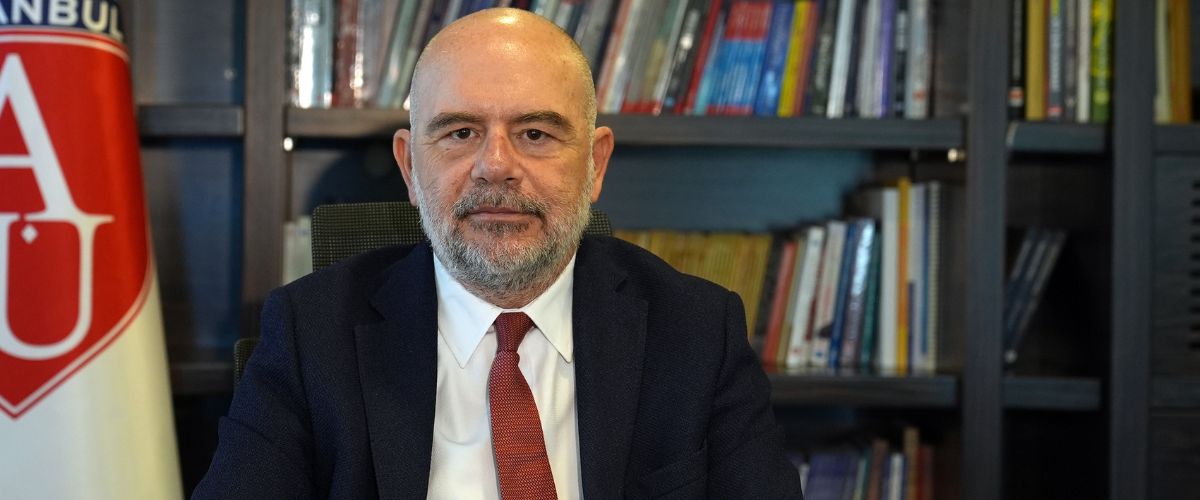The Future of Education in the Age of Artificial Intelligence
Altınbaş University Vice Rector Prof. Dr. Ali Argun Karacabey discussed how AI and technology are transforming education, emphasizing the need to use technology to give graduates a competitive edge.
Altınbaş University Vice Rector Prof. Dr. Ali Argun Karacabey discussed how artificial intelligence and technological advancements are transforming the world of education. Karacabey stated, "We must leverage technology correctly to give our graduates a competitive edge in the workforce."
Prof. Dr. Ali Argun Karacabey, Vice Rector of Altınbaş University, made statements regarding the role and importance of universities in the future of education. He emphasized that the primary goal of educational activities is to prepare students for the future and their professional careers. Karacabey highlighted that developments worldwide have fundamentally transformed educational activities, noting, "In the past two years, something called artificial intelligence has emerged. We now see that artificial intelligence is integrated into business processes in companies. In recent years, it has been said that 'Technological advancements and artificial intelligence will eliminate many professions and bring about new ones.' Therefore, we must educate our students according to this changing world."
Karacabey stressed that universities need to transform their educational systems and structures to better prepare students for both academia and professional life. He pointed out the necessity of teaching students how to use artificial intelligence purposefully, stating:
"If we graduate our students with proper training on the effective use of artificial intelligence, they will have an advantage in the workforce over those who do not possess this knowledge. We must integrate every aspect of technology into the education process. Today, we are dealing with a new generation in universities. In the past, a maximum of two generations would work together in schools and workplaces. Now, it is three or even four generations together. We are currently with Generation Z. We need to understand very well how this generation wants to be educated. We must move away from the mindset of 'I learned this way from my professors, and I will teach this way too.' This generation sees electronic devices as an extension of themselves. We need to accept this and transform education accordingly, shifting to student-centered learning."
Karacabey emphasized that students should have a say in how classes are conducted, how assessments are carried out, and the rules of the classroom, stating:
"Students should be part of an interactive learning process. We need to move away from the idea that the teacher talks, the student listens and takes notes, and then goes home. For instance, some courses should allow students to teach their peers. When students take ownership of the class, they will participate more eagerly. Our goal should not be for students to simply get their diplomas and leave, but to ensure they learn. If we achieve this, we can say we are successful. This applies not only to universities but to all educational institutions. When we prioritize learning and students accept this, it will be easier to produce qualified graduates."
Karacabey underlined the importance of enabling students to develop social skills during their university life, stating:
"We should nurture globally competent individuals through student clubs and collaborations with international partners. At our university, we have initiated the extracurricular transcript project. We believe that extracurricular activities hold value and should be rewarded. Upon graduation, our students will receive an additional transcript alongside their academic records, documenting their extracurricular achievements. This certification of skills will be very important when entering the job market. Students today do not just learn the information from textbooks and consider it sufficient. We are trying to ensure that our students receive education in other areas as well. These are essential for producing qualified students prepared for professional life."
Highlighting that Altınbaş University has the highest proportion of international students among Turkish universities, Karacabey continued:
"In fact, we are among the top 50 in the world rankings. A significant portion of our students are young people from neighboring regions. For many of the countries in these regions, Türkiye is a leader and a country they follow. Most of these students come here without having had friends from other nationalities. Therefore, we organize an orientation week before the academic year starts. We conduct workshops that support intercultural communication and demonstrate what university life should be like. Thanks to this training, you can see the confidence in most students in the first week, realizing 'I can also be friends with people from other nationalities.' This is very important for fostering friendship between different cultures."
Karacabey emphasized that Türkiye's position as a leading country in Africa and the Middle East imposes responsibilities on universities, stating:
"It is crucial to guide students coming from certain countries with knowledge of their job markets. When these students graduate and return to their home countries, alumni associations play a significant role in assisting them when they seek to establish business relations with Türkiye. We never lose contact with our alumni. In fact, we have alumni ambassadors in various countries. These students, who have studied in Türkiye and returned to their countries, are potential friends of Türkiye. Leveraging this and cooperating with them will significantly benefit our country."


